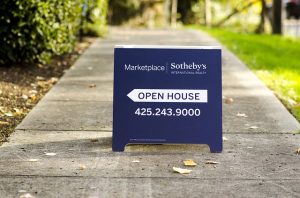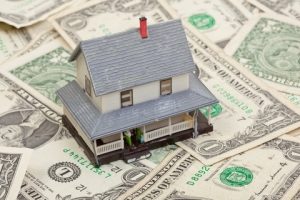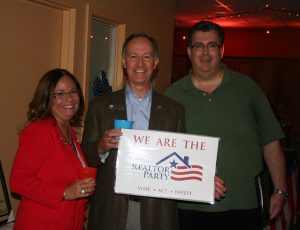
Many people don’t trust real estate agents. That’s because popular culture and scholarly research depict real estate agents and the real estate industry more generally as self-serving, ruthless money-makers who don’t care about working-class people.
But how do real estate agents actually feel about and experience their work? Based on interviews with 10 agents and 24 brokers working in Sunset Park, a neighborhood in Brooklyn, New York, I found that professionals in the real estate industry generally experience real estate as a positive, neutral, and fair realm.
Seekers of Security
Many of my study participants turned to real estate after having precarious prior work situations and/or prior experiences with significant social insecurity. These participants appreciatively related to real estate as a secure, stable, and rewarding field.For example, Virginia, who came from a struggling working-class family and whose parents “never owned a home,” described deciding to enter real estate after meeting her father’s very successful friend who was in the field:
I remember I went home and told (my boyfriend), “I’ve got to do real estate!” I don’t know anything else. I’m in high school. I barely know how to tie my own shoes, but I’m going to do real estate! Because I wanted to live comfortable and I saw that he was comfortable.

Pamela described, how, years ago, she and her husband “lost everything in the (stock) market.” Her work as an agent today, she explained, reflects how she no longer believes in “getting rich quick” and how she is focused on “working hard… living below my means” and “just looking to live a little bit of a better life.”
My study thus highlights the importance of taking into account my participants’ complex life experiences to understand how they relate to real estate.
Doing Well by Doing Good
Many participants clearly felt good about their work, describing themselves as providing important assistance to people navigating a stressful urban market. Those who worked with buyers felt that by helping others obtain a valuable asset, they were also helping them secure their financial futures. Matthew described his feelings about his work in this way:Actually, I love it. I really do. It just gives you a lot of satisfaction to put somebody into a house and you know that they’re happy and that they’re no longer paying rent and they’ve made a future for themselves… It’s a smart move.
Some of these participants even described the satisfaction they feel upon learning that former clients’ homes were rising in value. Lily explained:
Most of the thing that I feel good about is when I sold people the house and the house value went up, and they’re happy. I’m happy.
In short, I saw that the hectic, fast-rising market in Brooklyn served as a favorable context for my participants to develop positive professional identities.
Ideological Forces and Uncritical Views Of The Market

Sunset Park has a long history as a low income and immigrant neighborhood. However, in the recent period the neighborhood has been targeted by various public and private sector actors for reinvestment and redevelopment. This has resulted in new forms of economic activity, new housing and retail ventures, and new amenities and services. Since 2009, it has followed the typical pattern of a gentrifying neighborhood and experienced fast rising property prices and steadily rising rents. The socially produced changes in the area have clearly improved local property interests’ positions, which helps explain why they can demand more from buyers and renters.
Even though my participants revealed themselves to be close observers of the neighborhood, they did not point to the way the neighborhood was being changed to explain rising prices and rents. Instead, they relied on concepts drawn from standard economic theory. When I asked them why rents and property prices were rising they all quickly, briefly, and simply referenced “the market” or “supply and demand” dynamics as causal factors.
Their responses provide an important clue about how and why my participants can maintain an uncritical view of real estate. Their familiarity with concepts like “supply and demand” — through which they can explain rising rents and prices as an effect of neutral, disembodied forces — may encourage them to disregard the way real actors and institutions play a role in reshaping neighborhoods in ways that benefit some (property owners and even real estate professionals) while disadvantaging others (renters in particular).My participants also seemed significantly influenced by “the myth of meritocracy,” another dominant ideology, that can further explain their positive views of real estate. When I asked them to explain how people become wealthy through real estate, their responses essentially offered up admiring depictions of investors who earn their wealth due to personal attributes or efforts. They mentioned individual characteristics such as “good eyes,” “vision,” and “a willingness to take risks.” Their responses thus paint a picture of the market as a component of a fair society where one gets what one deserves.

It should be remembered that, given their profession, my participants have market data readily available to them showing that local property owners’ fortunes have collectively and concurrently risen recently. Such data could lead them to acknowledge that at least some of the wealth generated by property is an effect of external, social forces (such as the development activities changing the neighborhood). That such points were never made suggests that the “myth of meritocracy” may play a significant role in the urban arena, as it can discourage people from thinking critically about the inequalities produced through the property market.
Conclusion
While certainly motivated by financial rewards, my study reveals my participants to be fully social beings, as people who perform their work through a complex prism of meanings. I thus provide a more nuanced view of how and why people can remain committed to a field that has been linked to the ever increasing financial burdens on the urban working classes.
—
Want to know more? You can find the research article about this study here. Check out the author’s recommended readings below!
Recommended Readings:
Tom Angotti. 2008. New York For Sale: Community Planning Confronts Global Real Estate. MIT Press.
Tarry Hum. 2014. Making A Global Immigrant Neighborhood: Brooklyn’s Sunset Park. Temple University Press.
Henri Lefebvre. 1991. The Production Of Space. Blackwell Publishing.
Christopher Mele. 2000. Selling The Lower-East Side: Culture, Real Estate, And Resistance In New York City. University Of Minnesota Press.
Carol S. Wharton. 2002. Framing A Domain For Work And Family: A Study Of Women In Residential Real Estate Sales Work. Lexington Books.
